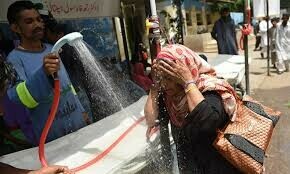MUCH as the powers that be may wish it was not so, sometimes the exploited classes will stand their ground. So it is with the Okara Military Farms, a saga that refuses to go away ever since it surfaced in the media about 15 years ago. The controversy centres on 17,000 acres in Punjab’s ‘canal colonies’, and involves issues of patronage politics, state coercion and land rights that can be traced back to pre-Partition days when the British Indian Army — that acquired the area on lease in 1913 — refused to give ownership rights as promised to farmers working on the land. The Pakistan Army inherited this holdover from the British and continued along the earlier pattern, ie a 50-50 sharecropping arrangement with the farmers, without too much by way of defiance from the latter. However, in 2000, during Gen Musharraf’s time — military governments are an ever-reliable catalyst for expansion of the khakis’ economic interests — the authorities in Okara introduced a new system whereby tenant farmers had to pay rent in cash rather than in kind. This would, in effect, turn the sharecroppers, who had tilled the land for generations, into contract labour who could be evicted from the farms on short notice. That laid the foundations of a resistance movement led by a farmers’ union called Anjuman-i-Mazareen-i-Punjab, which has repeatedly been countered by the state through brute force.
The state’s actions this time around make it clear that it will spare no weapon at its disposal to crush the ‘rebellion’, even cynically using the pretext of the National Action Plan to justify preventing an AMP demonstration. Subsequently, 4,000 tenant farmers were booked on various charges, including under the Anti-Terrorism Act, for allegedly blocking GT Road and causing injuries to policemen through aerial firing. There have also been dark murmurings by local authorities of ‘no-go’ areas in the vicinity. One would imagine that some recalcitrant farmers who refuse to give up their customary right to the land — and whose claim to that land by some accounts is stronger than that of the military, notwithstanding the latter’s sense of entitlement — are a threat to the country’s peace. It is all very well to counter militancy in its naked, violent manifestations, but it is equally important to address the socioeconomic distortions that have laid the groundwork for extremist tendencies in the first place. This is not the way to win the larger war.
Published in Dawn, April 24th, 2016











































